Complexities in family law - finding resolutions outside the box
How can families in need of support continue to seek resolutions when so much is changing around them? Is it time that we all started thinking outside the box?
The world has changed, and family law is no different. The Family Courts are backed-up with ever-increasing delays, and that means the people who need to use them aren’t easily able to do so and are waiting longer. The knock-on effect of this backlog is having both obvious and unforeseen consequences.
We speak to the experts who face these challenges on a daily basis, and ask how family law professionals can find resolutions to these new and emerging problems.
From the increasing use of mediation and arbitration, to the impact on children and their families, through to the economic volatility of financial agreements – it seems that the closer you look the more complexities you see.
Couple all of this with an alarming rise in domestic abuse and there is clearly a need to think outside the box.
Join us as we explore all these issues and more…
Three Videos, one big theme.
Explore the full report below, or use the chapter headings to jump to the relevant video.
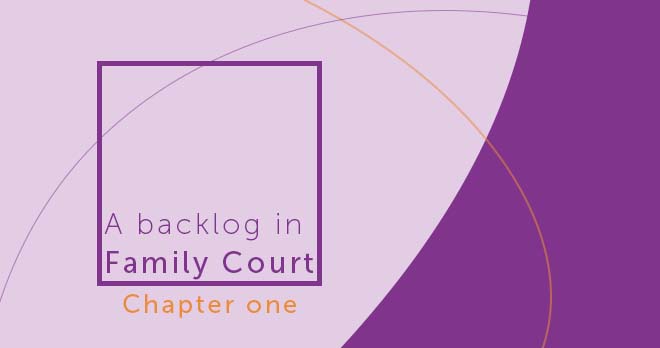
What are the consequences of a Family Court backlog?
If there is a court delay, then how can you possibly get closure and move on with your life?
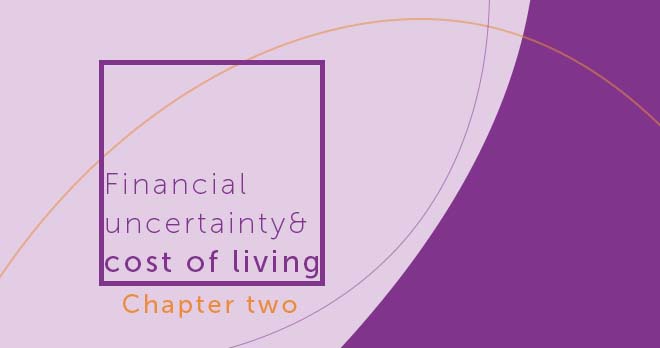
Financial uncertainty and cost of living.
With volatility around the value of assets and affordability, can we even afford the settlements on the table?
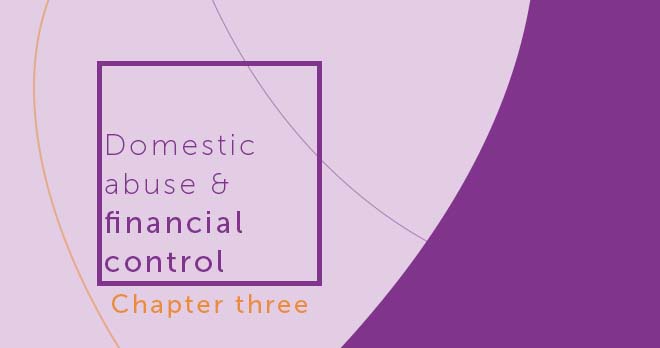
The alarming rise of domestic abuse and financial control.
Domestic abuse has always been a tragic reality, but are more people than ever trapped in abusive relationships?
What are the knock-on consequences of a Family Court backlog?
Chapter one
In recent years the Family Courts have become increasingly strained and under resourced, and so accessing them is becoming more and more difficult. Many people are finding that their hearings are being repeatedly delayed and for some this is causing significant personal turmoil.
And it is not just the stress or irritation of a court date being repeatedly changed, for many there are huge knock-on consequences for both their mental and financial health. How can people work towards gaining closure or resolution if they are unable to access the very service that is designed to provide it?
We speak to the professionals at the forefront of this issue to help explain what these delays mean and what alternative routes that don’t involve the Family Court are available.
For someone trying to access the Family Courts it may feel like an unavoidable road-block, but we want to show people that if they are willing to think outside the box, there is often another way.
Watch video one (of three)
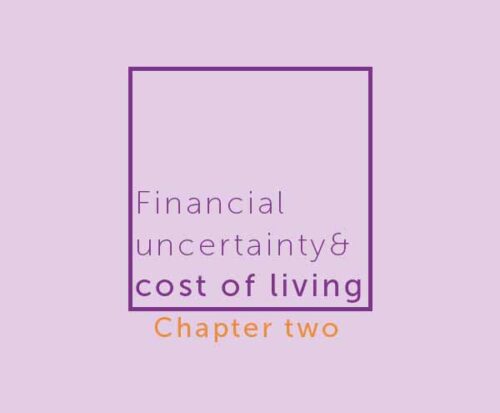
Discover how the cost of living and financial uncertainty is affecting family law services. Hear from experts who are thinking outside the box.
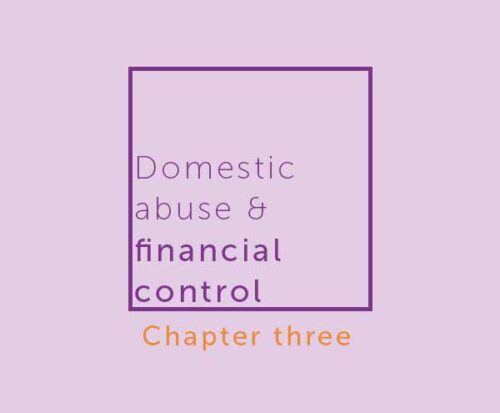
How is domestic abuse and financial control a growing issue for family law and society? We speak to the charities on this frontline.
What the experts said on the Family Court backlog
Below you can explore in more detail what the experts said. Or you can always message the team and speak to them directly.
Have you seen complications arising from a backlog in the Family Courts?
NM: I think first of all, what you say is quite right. If you look at the statistics, the vast increase in care work, the problems with judge resources, all those things lead in the same direction. Massive overcrowding, lots of delays. So in private law, children work in particular, I think we’ve be forced to reconsider.
But that has that has been running parallel with a reconsideration anyway because of the nature of how corrosive and difficult, bitter and unhappy most of all for the kids, private law work can be.
So I think we’ve got an opportunity here to get something good out of a bad situation and to offload significant amounts of children work, of the right sort, into first mediation and then arbitration.
So they come to the arbitrator or the judge with five or six different points and you say, yes, no, I don’t agree with either of those positions. Rather than having some long-extended argument about, how do we construe this or that. It’s much more efficient.
Is Arbitration good for child family law cases?
NM: I have been disappointed in the last year at the take up of children cases. I think financial stuff is ideally suited for arbitration. It’s not that different to the system that goes on at the moment. And there is a bigger take up in finance, but in children, I think there are a lot of things that the lawyers and the parties are worried about.
I think one of them is “we’ve recommended this guy, what happens if it goes wrong?” rather than “this is the judge we happened to get on the day”. So you do want to pick your arbitrator carefully. The second thing is that people do not realize that there are inbuilt security systems, if you like, in terms of the ability to appeal an arbitration to a court.
And thirdly, I think people don’t realize that these arbitrations are enforceable under the arbitration act. You go to court and you get them to certify that this is a properly constituted arbitration order. And what happens then is that you have all the benefits as though you’d been through the full court process.
So I think people are worried. And when you when you’ve got a new thing, people take time to adapt to it. But I think force of circumstance will make them adopt.
Is arbitration the answer to the court backlog?
NM: I think that arbitration is not the answer to everything. I think mediation before arbitration is a real answer because by the time you get to arbitration, people are already starting to show some signs of damage. So it’s not a perfect position.
The more it gets known, the more it gets used. I think that through things like this, through articles, through lectures and through the Court of Appeal, continually telling us that alternate dispute resolution is the way to go, it will be much better known. People will understand what you can do and what you can’t do in arbitration. What cases it suits and what not. And it’ll be just a step on the road.
You’ll be you’ll be driving on the road, the end of which is five day hearing in court. And there will be various turnings, one of which says mediation, another says arbitration. And people will be using each of those turnings to slow down the amount of traffic, and avoid court.
Can you use mediation if your family court date keeps being delayed?
AC: The reality is that the courts are very chaotic at the moment. The court staff admit that everyone from the top down admits that.
There are so many families [waiting for court] that shouldn’t be there. That should be trying to find ways of resolving issues following their separation in different ways outside of the court. Mediation is one of those ways, it enables them to do that together and with a lot of support along the way rather than the decision-making being taken away from them.
And so in mediation we are seeing more people who will phone up and say their solicitor has suggested that they speak to me because the reality is they’re caught up in the court process.
In fact, this morning I had a call just on the phone that on that subject where somebody had said they’re in court proceedings and their court hearing date has been put forward several times.
They have no idea whether that’s going to happen. So they want to come into the mediation process. And so that is happening increasingly. But I think even more importantly, there is a much better understanding now that when families are going through this very, very difficult time when they’re going through the separation process.
Is family mediation a legal dispute?
AC: It isn’t necessarily a legal dispute, and many families do end up in the court system because they feel that’s what they have to do. So they get funnelled into that. And often it’s not where they want to be, but they feel it’s a legal dispute.
The reality is there’s a much better understanding now that it isn’t legal. And what families need, in fact, are very different things to support them through this transition. Obviously, where there are safety concerns, or if there are any child protection concerns, then the court is the right place for them to be. But because the courts are so sort of chock a block at the moment, people who need the court system aren’t getting it.
So it’s a question of how can we support families to come out of that court system or ideally never get in there in the first place.
Does mediation create a more positive outcome?
AC: I think that’s absolutely the case because the reality is people don’t know what mediation is until they are asked to find out about it, But the majority of people just by being able to talk to me, I suppose about what mediation is going to involve frees them up to look at it in a completely different way.
And so if they are speaking to me or a mediator, they will find out that actually this is all about helping them as an individual family, meet their families needs. It allows a much more creative solution that is built around their needs rather than more generalized approach. And they often wouldn’t know about that unless they speak to a mediator to find out about it.
I often talk to clients saying this is the way that you can get back control of your life, because the reality is it can feel very out of control once they are within a court system. But if they don’t know any different than going to court, then obviously that just what they’re going to be doing.
Can mediation take place online?
AC: So as a mediator, it’s really important that I assess very thoroughly whether mediation is the right process for them and online meetings mean that we have a great variety of models that we can use in mediation, so we can, for example, have people on separate screens so they don’t see each other because there have been safety concerns, or domestic abuse concerns.
Safety is always a big topic and online meetings have meant that there are perhaps more situations that we can now mediate safely where perhaps we might not have been able to do it if we just had the option of seeing them in person.
It is not okay to put people on the same screen where they can see each other, and it is much better to have them in separate spaces. And the reality is also with mediation work, it’s very stressful. You know, emotions are very, very intense when people are separating and sometimes just seeing people on the screen like this can be very difficult.
So again, having that there’s alternative models that we can use has been fantastic. We’ve been able to be very flexible and to meet people’s needs because everyone’s needs vary. So it means you might be working with people online then, you might say, can we have our next meeting in person? Then we’ll come back to online.
Can children be involved in mediation?
AC: It is really important to hear the voice of children when their families are separating and many more parents that I see will ask me if I can meet with their children as part of the mediation process. And interestingly, children seem very comfortable generally having a chat online whereas in the past, they wouldn’t do that when seeing them in person.
It’s called child inclusive mediation. And it’s not for all families, but it’s certainly something that I would discuss with and a lot of families where children are the right age because we know children benefit from being given that opportunity and being asked whether they would like their voice to be heard within the process. It basically helps parents put the needs of their children from their children’s perspectives and onto the table alongside their own perspectives of what they feel their children need and enables them to make much better decisions.
The only thing is that mediation shouldn’t happen when mediation is not safe for any member of the family.
Mediation is, I would say, a better option for parents because it also enables parents to think about communication, how they are going to meet the needs of their children and how they’re going to parent together after separation, how are they going to communicate appropriately with their children and so on.
We know that from a wellbeing perspective, children who have the opportunity to talk to somebody about how they’re doing following separation benefit in terms of their mental wellbeing, because otherwise it’s very hard to talk to other people about it.
Will child mediation be used in court?
AC: People often think that there might be a written report from a mediator setting out what the child has said and all that could be some sort of written evidence that can be used then within the court proceedings.
But it’s really important to understand that mediators will not give any written report about the meeting with children. And that is something that I stress to all parents when I see them. And because it’s really key to understand that this is for the child’s benefit, but it can have very much and often does have a fantastic knock on effect for the parents because it enables the parents to make informed decisions, taking their children’s thoughts, feelings, wishes, concerns into account.
When I see children as part of the mediation, the meeting I have with children is completely confidential, subject to safety, and I only feedback to the parents what the children give me specific permission to feedback.
But the whole conversation is confidential because mediation discussions are confidential. So parents can’t use any of that in any court proceedings and it’s just for them to make better parenting decisions with the child.
What is a MIAM?
AC: A lot of people will phone me up and they will tell me that their solicitors have said they need to try mediation first before they do anything else. And I always explain to them actually that isn’t quite the case in the sense that they don’t have to, it’s voluntary. But what they do sometimes have to do is come along and have a mediation information and assessment meeting. Some people call it a Miam.
I would then in those meetings, explain exactly how mediation works so they can ask questions, get a feel of it as much as they can without doing it. And importantly, they would each tell me all about what is happening.
They would explain what is happening now, what they feel mediation might be helpful for in terms of helping them resolve what issues they have and what are the difficulties they’re experiencing. And importantly, they’ll tell me a little bit about what’s been happening in the past because I explained to them I then need to get a feel as to whether mediation is the right process for them and if it is and they want to go ahead as well at that point, that’s fine.
If I feel that mediation isn’t going to be the best process, it isn’t going to be that helpful because whatever I’ve heard or I feel, it’s not going to be safe or suitable, then I will in fact say. If I feel it’s going to be a helpful process, then we set it up.
How does divorce coaching help people who are suffering because of a court backlog?
CMc: I think helping people to steer clear perhaps of the court process is really important in that it enables you to stay more in control of your own outcome. It enables you to stay more in control of the decisions that you’re making. Because when you go through the court process, everything is down to the decision of one person on one morning or one afternoon. And I like to help my clients feel more in control of where they’re going and what their likely outcome is going to be. So I work with clients to help them to respond rather than react to understand the different choices that they’ve got.
How can separation and divorce coaching help people avoid family court?
CMc: What I often find is that my clients assume that there are only two routes to getting a divorce.
The first one is DIY online. The second one is it’s a very high conflict court case. So two ends of the spectrum and there are so many different options in between and I can help clients to work through which options perhaps are going to work best for them. I think the work that I do helps people to reconnect with themselves, to find calm, to know what questions, to ask and to get clarity around the route that they want to take.
I believe hugely in the power of putting together a really strong support network right at the start of any separation. And that might be with a coach like me, a solicitor, a financial advisor, perhaps a counsellor, perhaps mediators, and domestic abuse support if needed.
How can someone deal with the stress of a divorce?
CMc: So one of the big feelings that a lot of my clients talk about is a fear of being judged or feeling shame or guilt, perhaps around going through the divorce process, particularly if you’re the person who has chosen to to initiate a divorce process.
We can support people to help them work through those feelings, to help them go into the separation or divorce in a proactive way, trying to get to a point where they have a healthy divorce so that people can navigate their way through without that fog of emotion, without the fear of being judged, knowing where they’re trying to get to and come to the end of it and be able to look back and feel proud of how they’ve behaved.
I think that people are much more understanding now that divorce is not just a legal process, that there’s this this emotional journey and financial journey to go through.
Some of the emotions that come up in divorce can be very powerful. Fear, distress, pain, anger, those emotions. If you can learn how to deal with those, manage those control those, you can respond rather than react. You can respond without responding through a fog of emotion that’s going to make your journey through the process of divorce.
How is financial uncertainty and the cost of living affecting family law?
Chapter two
Separating family assets or agreeing on maintenance payments can be a very difficult process. Financial decisions are rarely just about the numbers and very often emotions play a large role in any discussions or decisions. But what if all of that is taking place against the backdrop of huge economic uncertainty and financial volatility?
This reality is being played out by many people who are separating or navigating family law issues today. In addition, delays in Family Courts to approve agreements mean that during the course of the delay the value of assets could have changed so much that the settlement may no longer be fair or workable.
We speak to the professionals at the forefront of this issue and ask them how family law can be effectively applied during a time of financial crisis and in the context of cost of living pressures. What do we all need to do to address these new financial challenges and think outside the box?
Watch video two (of three)
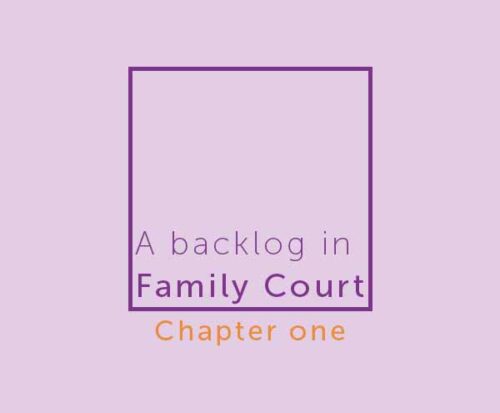
A Family Court backlog has obvious and unforeseen consequences. We speak to the professionals serving the needs of their clients in an increasing congested space.

How is domestic abuse and financial control a growing issue for family law and society? We speak to the charities on this frontline.
What the experts said on the cost of living pressures
Below you can explore in more detail what the experts said. Or you can always message the team and speak to them directly.
Should you pay for mediation?
AC: I’m hearing a lot of concern from people. They are very worried about [the cost of] seeing a solicitor, even though I say I do recommend that you get independent legal advice. They are very concerned about the costs of mediation. They sometimes say, well, can we spread it out? Can I see you this month and see you again next month?
So it’s a very real concern for people. But I also see a knock-on effect of that. They don’t pay for things like counselling and therapeutic support, which I think is a great shame because I think that would help probably most separating families because it’s so stressful for them.
So my worry then is that people won’t be getting the help they need, and then that in turn is going to mean that further down the line the stress and worry is that much worse, and they’re more likely to end up in the court system.
But we do have the have the benefit of a mediation voucher scheme that the Ministry of Justice have been running now for a couple of years. We don’t know whether that’s going to stay. I would love to see that stay in effect.
I would love to see it expanded, in fact. And that has meant and I think a greater number of people have come into mediation because of that, because they have had the benefit of the voucher scheme, which gives them up to £500 and towards their mediation session costs.
What does the cost-of-living crisis mean for Arbitration?
NC: Well, my experience going back through several economic crises over the last 40 years is that it makes things worse. It makes people want to hold on to what they’ve got and whether that’s the house, the money or primary possession of the kids. People react by feeling they’re backed into a corner and coming out fighting. And so in many ways, I think mediation and arbitration ideally suited to that because we need to say to people, calm down. This is the way to do it. And if you can’t agree, this is the way to do it with the least casualties.
What we don’t want is [arbitration] to be seen by the government as a panacea to further cut back on court resources. I’m really worried about that. What we need in the courts is more rather than less, or even to maintain the current position. So the idea that you’ve got another tool in the toolkit is a good idea. The idea that you’ve got a tool which can replace some of your funding, is a very bad idea and I am concerned about that.
Should you pay for divorce coaching?
CMc: For those clients who are able to invest in 1 to 1 coaching, it can really sit beautifully alongside your legal services and actually help you to keep your legal costs down. Because when you are responding without that fog of emotion, you can make much better decisions and much quicker decisions and much more informed decisions. And you can go into perhaps every meeting feeling emotionally prepared.
But, you know, also I’m working hard to develop lots of free resources, too. So if you go to my website, there are lots and lots of blogs I’ve published a book a couple of years ago which you can buy on the Internet, which takes you through all sorts of different strategies that I use in my 1 to 1 sessions.
So I think we as a profession, we probably need to diversify to think of different and new ways to support people through this process. One of the things I have noticed that concerns me is perhaps the increase in domestic abuse cases due to people worrying about their financial situation and so on. So I think it’s really important that we work alongside charities that help people with those things as well.
Can a delay in family court affect your financial planning?
NK: Just because something settled on the paperwork side, doesn’t mean the courts have agreed it. It doesn’t mean that actually the settlement can move forward in any way. And the trouble is, we can see somebody, let’s say a year ago where the circumstances look one way and then even six months on and things could look very different.
What I mean by that is things like transfer values, for example. The big thing at the moment is you’ve got final salary pensions that a year ago the transfer value was a million. You fast forward a year on they’ve dropped on average by a third. So that settlement for someone who’s expecting to receive half that, that’s a huge difference between half of one million and half of 600,000 let’s say. And that could make that plan completely different to how it was when we spoke a year ago.
So I think really the key for me as a financial planner, it’s all about drawing a line in the sand. First of all, take away the fear of looking at your finances and understanding that this is what we’ve got to work with. And if things change along the way, at least we’re doing it with our eyes open.
There are things that you can’t control, but there are things that you can control. And the more insight you have to your current situation, the better the decisions you can make going forward.
How does finical adviser work with a solicitor during a separation?
NK: I work quite closely with the actual solicitors involved. I can speak directly to [them], and we can all be on the same page and get it done quicker. I can suggest things and talk to the lawyer and say this isn’t enough. And that quite often happens. I would get involved quite early on if there’s a settlement on the table and we plot what’s been offered and we can see very clearly that’s not enough.
And quite often the other side will look at that and see [they are] not being fair. It can give people bit of a wake up call but also a bit of a bargaining tool where someone’s not accepting a deal and they think that a higher figure should be given, but actually do they need it?
And if I can show them that they’re not going to budge and it means you can move on with your life and you can get rid of all the stress and just accept that deal, you’re still going to achieve all of [your financial] objectives. Again, we can demonstrate that as well, and hopefully it just gets a bit of closure for everybody, whichever way we’re trying to play it.
Buy my job really is to focus solely on my client, and what their life’s going to look like post-divorce. I don’t ever work for [the] two sides.
Are we about to see an alarming increase in domestic abuse and financial control?
Chapter three
Financial abuse is an often misunderstood and under-reported aspect of domestic abuse, and one that unfortunately seems to be on the rise. Since the Covid lockdowns reports of physical violence within relationships have increased, but what is often not included in that data are the many complex and varied means of financial control also being used by the perpetrators of domestic abuse.
When speaking to domestic abuse charities we discovered how the cost of living crisis seems to be a factor in the rise of financial and other forms of abuse. But what is not clear however is whether the services that people rely on are able to manage this incoming rise of cases.
The good news is that survivors of domestic abuse still have free services available to them to help break the cycle, and there are many new and exciting ways that service providers are working collaboratively within the family law industry to ensure that people are supported quickly, and that those who need to access the Family Courts are able to do so safely.
Discover how domestic abuse charities and family law are thinking outside the box.
Watch video three (of three)

A Family Court backlog has obvious and unforeseen consequences. We speak to the professionals serving the needs of their clients in an increasing congested space.

Discover how the cost of living and financial uncertainty is affecting family law services. Hear from experts who are thinking outside the box.
What the experts said on domestic abuse
Below you can explore in more detail what the experts said. Or you can always message the team and speak to them directly.
How are domestic abuse services affected by the court backlog?
CM: When a client comes to us and we’re supporting them through their experience of domestic abuse or sexual violence or stalking, the delay in that [court] process can be traumatizing and can actually be retraumatizing. Something that may have hopefully only taken a matter of months is actually taking years because of the backlog in the court responses. And that can make it very difficult for people to rebuild their lives and recover and move forward.
Also if we’re supporting a client over a period of years through that experience, it obviously has huge resource implications for the charity as well.
So it’s multifaceted and the main issue that we have, is these people not having that closure, being able to move forward and actually retraumatizing them, in some instances, people have experienced deeply traumatic circumstances and that repeating and repeating until they’re able to find a resolution is really, really difficult.
Are cost of living pressures changing the types of domestic abuse you support people through?
CM: The cost of living crisis within the confines of an abusive relationship can be an accelerant, an additional source of tension between a couple.
So that’s the first point, in a already a dysfunctional relationship it’s adding fuel to the fire. It can also be an additional aspect of control as well. So for an abuser, it might be another aspect of the relationship that they put greater controls into, if they’re trying to confine their partner.
The other aspect we notice is when someone is at a stage where they want to leave an abusive relationship, there are many challenges to that. One is personal safety, the most dangerous time is when someone makes that decision to leave, but the other aspect is people often are concerned about how they’re going to cope financially, how they’re going to look after their family, where they’re going to live. If they’re already struggling financially, the cost of living crisis just adds to that burden. How are they going to cope and how are they going to be able to afford to live?
What financial support is available to people experiencing domestic abuse?
CM: We’re able to give financial advisory support through some of our services, we’re able to advise people on what they need to do to get temporary or permanent financial support. And we also have a fund where we make that available to give people, in effect, a crisis package.
But sometimes it’s practical things. If someone is moving into a new flat or a house, it might be that they need it furnished. It might be that they just simply need nappies and food. And we’re able to support people with that and also seeking new training opportunities and employment so that they can take care of themselves and their family, because it may be that they haven’t worked within the confines of that relationship because of abuse, because of the freedoms being restricted.
So their ability to move forward to build a new life, to build new skills and to seek employment is something that we provide support with.
Can mediation and arbitration help with domestic abuse cases?
AI: A lot of the time it’s not possible because unfortunately, we’re dealing with some very high risk domestic abuse cases. And there’s always this feeling that, you know, arbitration and mediation isn’t the right way to go. Where you’ve got a client who doesn’t want anything to do with the perpetrator and only feels safe in doing it through the family court.
But we do try and signpost clients early stages if they’ve got issues around child contact to maybe look at other resolutions which mean that things get sorted out more amenably and quicker.
Are cost of living pressures increasing the instances of financial control as a form of abuse?
AI: I think financial abuse has always been prevailing in a lot of domestic abuse cases. But I think we are getting a lot more now of perpetrators almost justifying their position with our clients as the victim.
I think we will start seeing a real increase and a real emphasis on that as a use. You know, we are hearing anecdotal stories where we’re getting cases now where like some of our clients are being basically asked to leave the home because they’re not contributing enough financially, which is ridiculous because of the cost of living.
Some of our clients come to us say, look, you know, my partner wants me to leave because I can’t contribute to the household anymore because everything’s going up and they can’t afford it. So we’re getting a bit more of that. So that’s sort of going down to the homeless sort of situation, housing as well.
So I think there’s going to be a lot of pressure on housing services as well this year with regards to the cost of living crisis, which impacts on us as well because it’s our client is in that homelessness situation. So we potentially may be doing more refuge placements, liaising more with the Council councils homelessness team to see if we can sort clients out that way.
Is financial abuse a type of domestic abuse?
AI: Financial abuse, can be a form of domestic abuse and like any sort of abuse that we deal with, can be manipulated in many different ways.
The main areas of financial abuse are where [a person] in a relationship basically controls the finances, may give money to their partner in a very small amount or may withhold money altogether as a way of controlling that person and not being able to do anything in their life.
The perpetrator may commit fraud, get money fraudulently by using the partners name, not paying the rent. Refusing to give money for food is a wide area, taking the partners money, basically having one account, controlling all the finances.
And a lot of it does go under the radar because I still think a lot of our clients don’t understand financial abuse as domestic abuse. And they’ve still got this one track vision of domestic abuse as being physical abuse and not looking at the other types of abuse present.
Does financial abuse affect both high and low-income people?
AI: I think it is a society-wide issue and it cuts across all social strata and income strata.
But some of the most complex cases of financial abuse I’ve seen have been at the higher end of where two parties are earning good salaries. And I think the sort of things that happen there is businesses are put into someone else’s name fraudulently, or massive amounts of money are owed. Or people are changing their pensions so the other party can’t get any of that money. I suppose, when it comes to financial matters in many respects, the more [money] you have, the more complicated and entrenched these problems can be… and it takes up a lot of family court time.
I think somebody in the street would probably think that the higher you go up the social strata, there’s less domestic abuse. But my experience is not the case. It does cut across all social groups.
Financial abuse is very much something that I think we’re going to be seeing more of this year. And I think it will become more of an issue in our cases as the cost of living crisis bites.
Our expert panel
We have worked with experts across the family law industry to understand more about the challenges our clients face. A special thanks to our expert panel for their involvement.


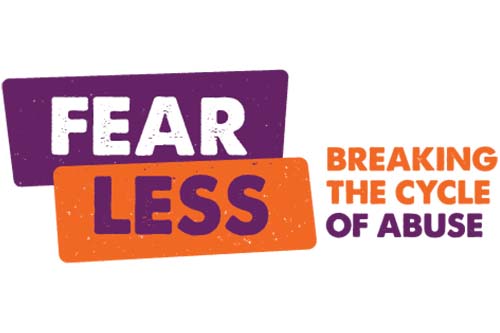




Nick is a qualified arbitrator with the CIArb, and a retired Judge. He recently won the ‘Outstanding Achievement Award’ at the Bristol Law Society Annual Awards Ceremony 2022. Called to the Bar in 1975, Nick practised in family law at St John’s Chambers in 1990, where he was Head of the Family team.
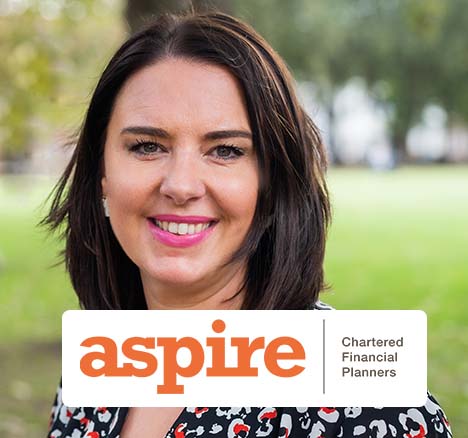
Naomi has been working in financial services since 2005 and has gained experience in various roles including advising for a large London investment management company. Her clients are typically based in the London, Bristol and Bath. Naomi is also a member of several women in business groups.
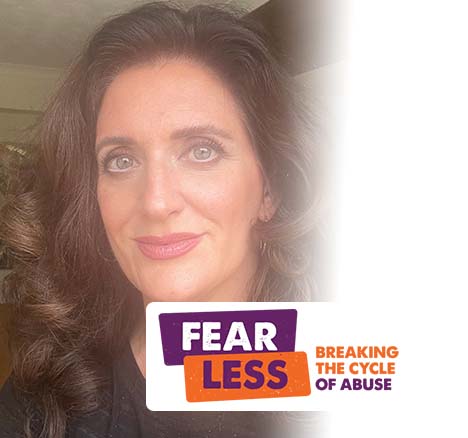
Claire is an experienced charity leader with almost 30 years in health and social care before joining FearLess in 2021. Claire started her career in fundraising and marketing in the Hospice sector and RNIB.
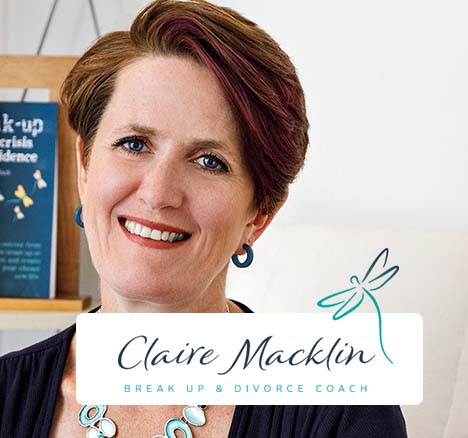
Claire is a specialist Divorce & Break up Coach, a single parent, Master NLP Practitioner and former lawyer. She helps clients to divorce with dignity, strength and integrity. Together, she aims to help you redefine your life, and ultimately help you look back with pride.

Southside achieve positive change by combining it with the family’s expertise. We work respectfully with whole families to help them to overcome their difficulties and to build resilience. They are very proud to say that over 50% of our paid staff were once service users.

Adrienne Cox works with clients in a safe, confidential environment which is informal, yet professional. She has 20 years mediation experience, an approachable manner and is sensitive to the challenges faced by those dealing with separation.
Our family lawyers are on hand to help
Discover our range of family law services












